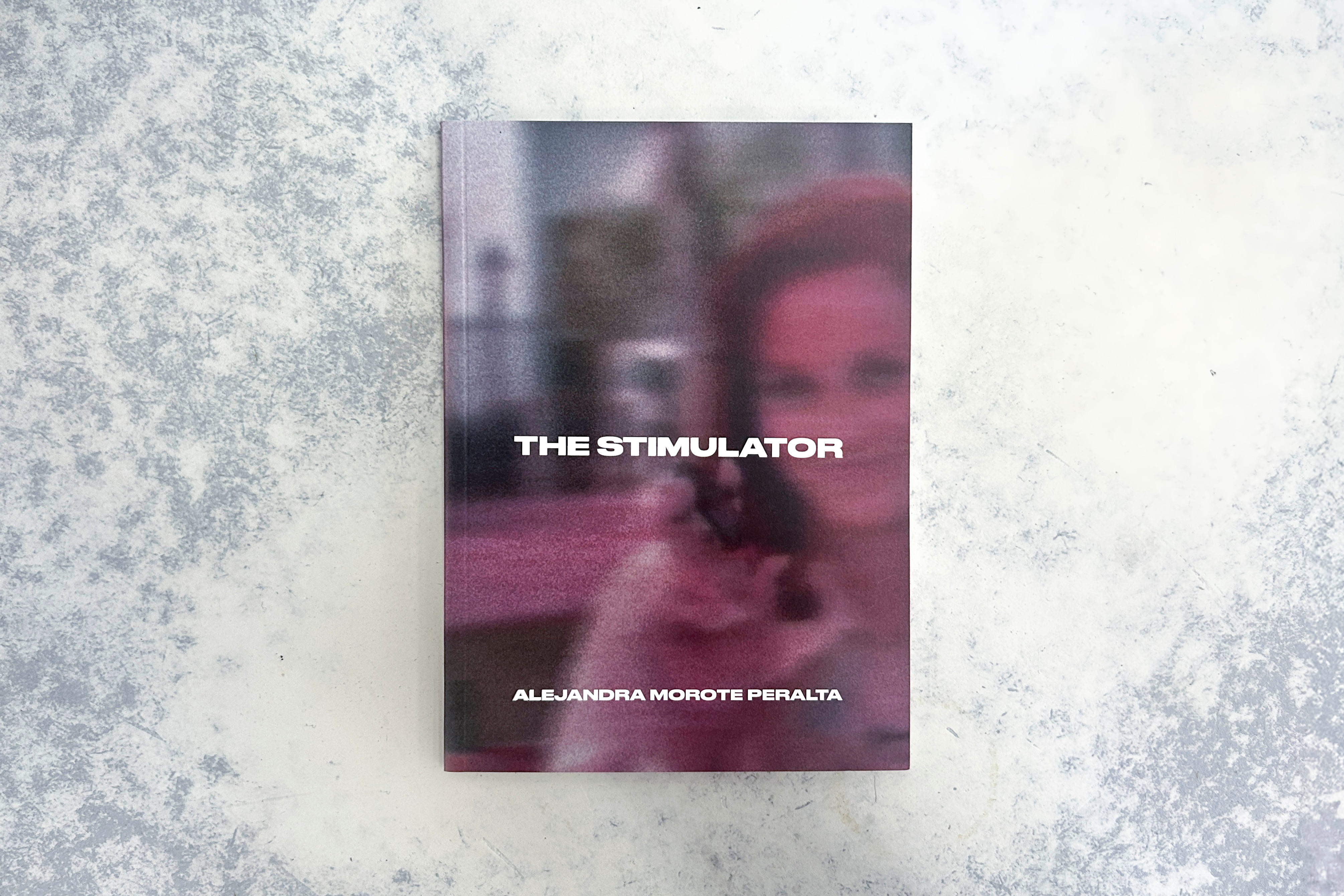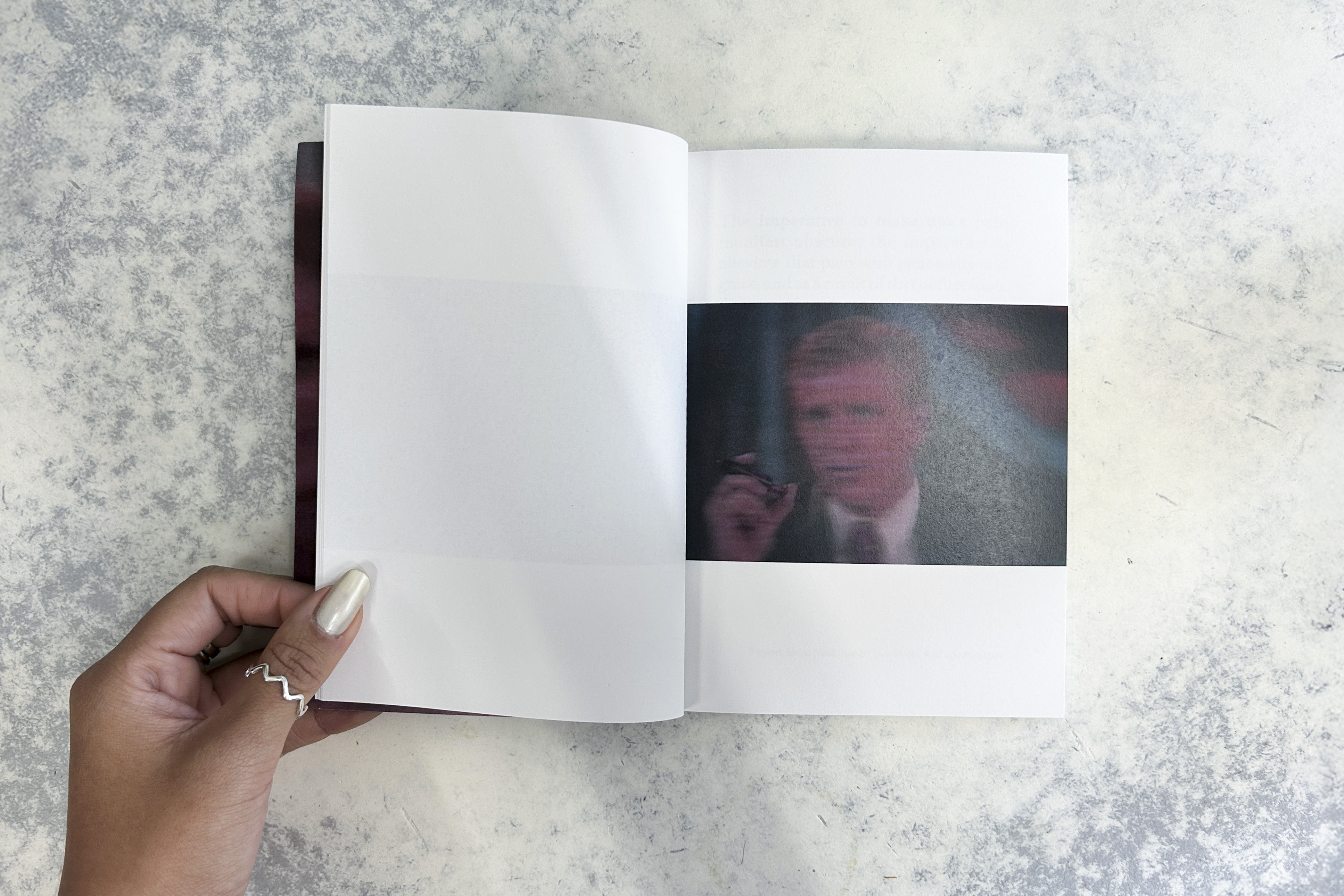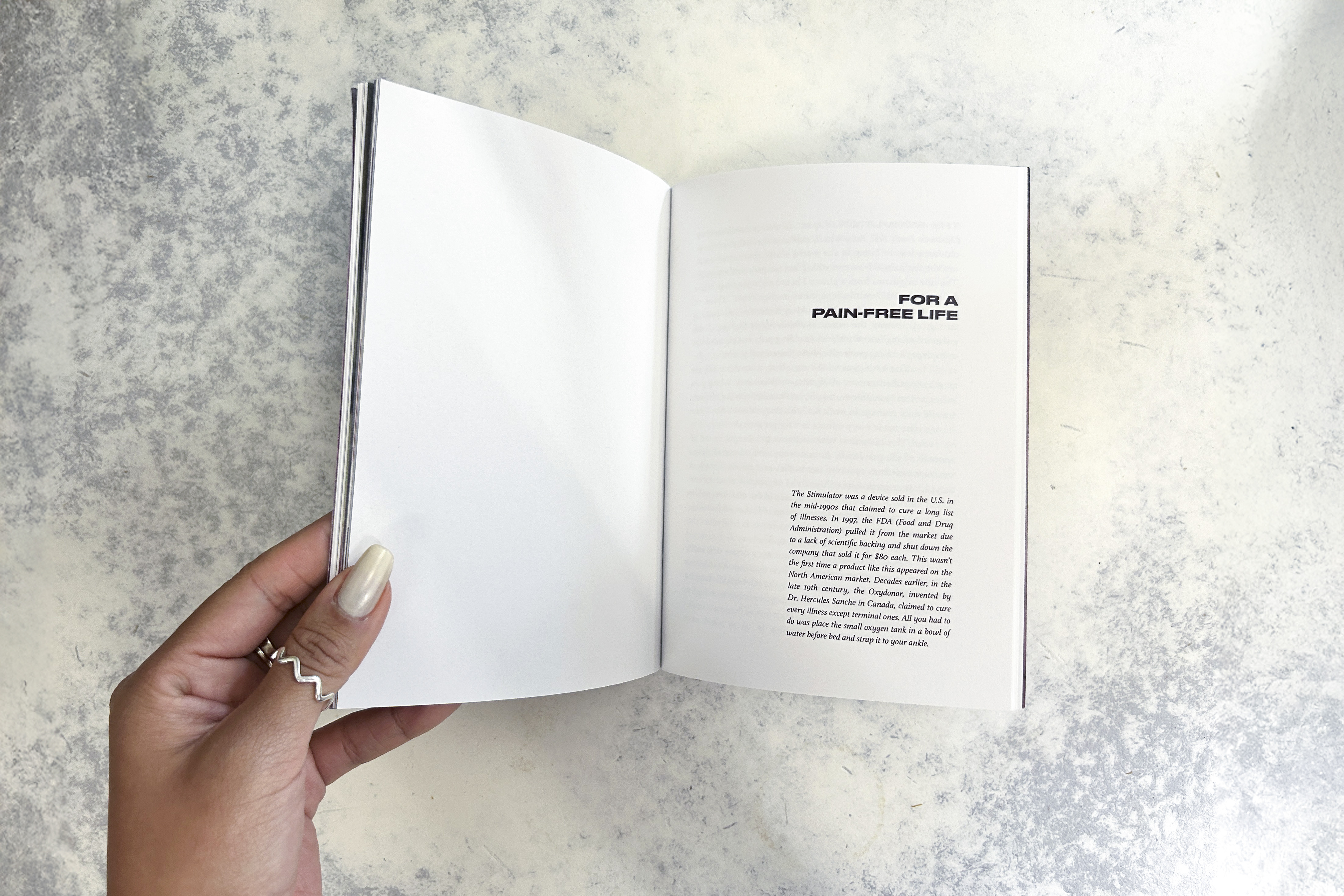
The Stimulator
The Stimulator is part of the research project Machines Don’t Feel Pain, which explores the body as a machine, a way of being in the world where there is no room or time for pain, where everything has purpose and meaning. The title originates from a phrase I heard eight years ago while following a HIIT workout routine on YouTube. “Think of yourself as a machine, all looking beautiful, all looking strong, all looking the same. Machines don’t feel pain,” the generic-looking instructor said. Avoiding pain was elevated like a trophy, promising perfection with guaranteed results.
The Stimulator was a device sold in the U.S. in the mid-1990s that claimed to cure a long list of illnesses. In 1997, the FDA (Food and Drug Administration) pulled it from the market due to a lack of scientific backing and shut down the company that sold it for $80 each. This wasn’t the first time a product like this appeared on the North American market. Decades earlier, in the late 19th century, the Oxydonor, invented by Dr. Hercules Sanche in Canada, claimed to cure every illness except terminal ones. All you had to do was place the small oxygen tank in a bowl of water before bed and strap it to your ankle.
Advertising, ever faithful to capitalism, thrives on aspirations, even when it comes to illness. It sells an idea, an image of wellness, and that image becomes the measure of our worth—even when we’re hurting. Through images, words, and empty promises, consumerism keeps moving, and our health becomes just another commodity to feed it. How do we find new ways to relate to pain? What happens if, instead of running from it, we allow it to live closer to us? Illness and pain are reminders of our mortality and impermanence and they make us more present, more connected to the world. As Anne Boyer writes in The Undying: “Mortality is a marvelous frame of reference.”
2025
Edition of 100
14,8 x 21 cm
60 pages
Digitally Printed by Petro Ofsetas, Lithuania
Published by Consuelo Press
Bilingual (english and español)
Edition of 100
14,8 x 21 cm
60 pages
Digitally Printed by Petro Ofsetas, Lithuania
Published by Consuelo Press
Bilingual (english and español)







